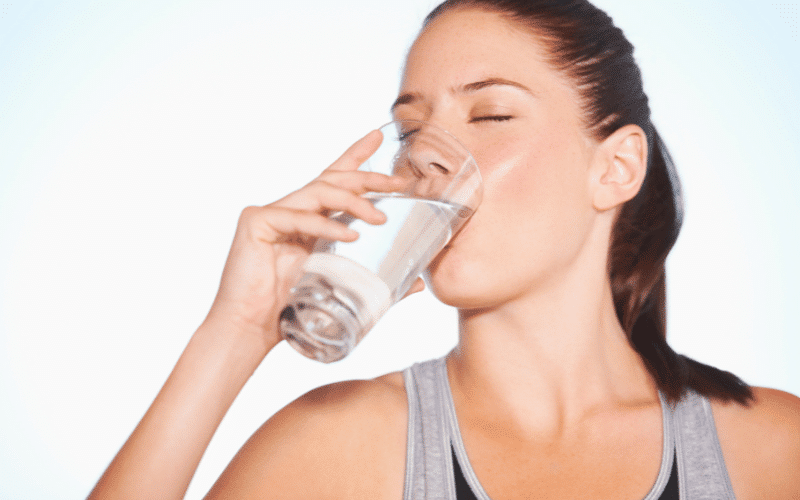Tip 2. Hydration: Quench More Than Just Your Thirst

Hydration is an aspect of health often overlooked in our daily routines, but post-thyroidectomy, it demands immediate attention. Your body comprises about 60% water, making it a crucial element in virtually every physiological process.
Following your surgery, maintaining adequate hydration can influence your recovery and wellbeing. But why is it so critical, and how can you ensure proper hydration? Let’s examine this further.
Firstly, understanding why hydration is crucial post-thyroidectomy is essential. If your treatment plan involves radioactive iodine therapy, hydration becomes a key player in managing side effects.
Radioactive iodine therapy often leads to dry mouth, a condition that can affect oral health and overall comfort. By staying well-hydrated, you can help maintain saliva production and alleviate dry mouth symptoms, promoting oral health and reducing discomfort.
Secondly, hydration aids your digestive system. Water contributes to the proper digestion and absorption of nutrients, two fundamental processes that are often compromised post-surgery.
As your body recuperates, it requires optimal nutritional support, which can only be achieved if your digestive system functions efficiently. Water plays a vital role in ensuring this, making hydration a key player in your recovery.
Moreover, maintaining proper hydration supports the function of every cell, tissue, and organ in your body. It helps maintain your body temperature, lubricates joints, aids nutrient transportation, and supports overall body functions.
In the recovery phase, these roles of water cannot be overstressed. By supporting your body’s functions, water indirectly assists in a quicker and smoother recovery.
So how can you ensure you’re well-hydrated post-thyroidectomy? Aim for at least 8-10 glasses of water per day.
If you’re not fond of plain water, infuse it with fresh fruits or herbs for added flavor without unnecessary calories or sugars. Furthermore, keep a water bottle at your side throughout the day, serving as a constant reminder to sip frequently.
Beverages such as herbal teas and fresh homemade juices can also contribute to your fluid intake. However, exercise caution with beverages that might cause dehydration, such as coffee, alcohol, or drinks high in sugars. These might quench your thirst temporarily but can lead to increased fluid loss, working against your goal of staying hydrated.(2)